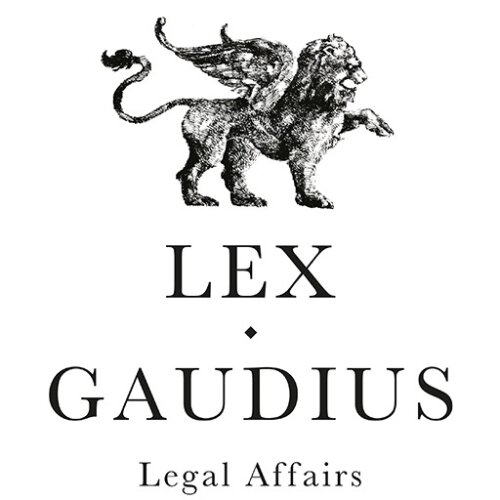Best Acquisition / Leveraged Finance Lawyers in Helsinki
Share your needs with us, get contacted by law firms.
Free. Takes 2 min.
List of the best lawyers in Helsinki, Finland
About Acquisition / Leveraged Finance Law in Helsinki, Finland
Acquisition and leveraged finance are critical areas within corporate and financial law, especially in a thriving business hub like Helsinki, Finland. Acquisition finance involves providing the funding necessary for individuals or entities to acquire a company, business, or significant assets. Leveraged finance describes the use of borrowed capital, often with a higher proportion of debt, to increase the potential return of an investment or to fund acquisitions. In Helsinki, the legal framework governing these transactions is robust, reflecting Finland's stable economic environment and alignment with European Union regulations. Transactions are often sophisticated, involving both local and international lenders, private equity sponsors, and regulatory bodies.
Why You May Need a Lawyer
Legal counsel is essential in acquisition and leveraged finance transactions due to their complexity and high stakes. Common situations where legal expertise is critical include:
- Structuring the acquisition or leveraged finance transaction to comply with Finnish law and EU directives
- Drafting and negotiating finance documents, such as loan agreements and security documents
- Managing due diligence to uncover legal and financial risks
- Ensuring proper transfer of assets, shares, or business operations
- Advising on cross-border transactions involving different jurisdictions
- Dealing with insolvency issues, enforcement of security, or debt restructuring
- Advising on regulatory consents and clearances from Finnish authorities
With the significant financial exposure and regulatory requirements involved, early engagement with an experienced lawyer can mitigate risks and facilitate a smooth process.
Local Laws Overview
Acquisition and leveraged finance in Helsinki are shaped by a combination of Finnish national law, European Union regulations, and established market practices. Key legal aspects include:
- Companies Act (Osakeyhtiölaki) - This law governs the manner in which Finnish companies are acquired and operated, including shareholder and board requirements.
- Contract Law Principles - Finnish contract law is generally flexible, allowing parties to negotiate terms, but certain requirements must be observed to ensure enforceability.
- Security Arrangements - Finnish law recognizes various forms of security, such as pledges on shares and assets, but there are specific formalities for perfection and enforcement.
- Financial Assistance Rules - Restrictions apply under Finnish law to the provision of financial assistance by a target company for its own acquisition, subject to certain exceptions and procedures.
- Bankruptcy and Insolvency Legislation - The legal framework protects creditors and prescribes steps during default, restructuring, or insolvency situations.
- Regulatory Oversight - Large transactions may require approvals or notifications to the Finnish Financial Supervisory Authority (FIN-FSA) or the Competition and Consumer Authority, especially if the transaction may affect market competition.
- EU Directives and Regulations - Cross-border elements and financing structures are also affected by EU directives, such as the Capital Requirements Directive and the Anti-Money Laundering Directive.
Frequently Asked Questions
What is the difference between acquisition finance and leveraged finance?
Acquisition finance refers to funding provided specifically for the purchase of a business, company, or assets, while leveraged finance involves using a higher proportion of debt, often over and above traditional levels, to finance such transactions, increasing both risk and potential return.
Are there any restrictions on how a Finnish company can finance its own acquisition?
Yes, under the Companies Act, Finnish companies face restrictions on providing loans, guarantees, or security for financing the purchase of their own shares, except under specific conditions and procedures, such as the so-called "whitewash" procedure.
What types of collateral are commonly used in Finnish leveraged finance transactions?
Common forms of collateral include pledges of shares, bank accounts, receivables, real estate, intellectual property, and movable assets. The process for perfecting such security interests follows strict legal formalities under Finnish law.
Do acquisition or leveraged finance transactions in Finland typically require regulatory approval?
Regulatory approval may be required if the transaction raises competition concerns or involves regulated sectors such as banking or media. The Competition and Consumer Authority and the FIN-FSA are relevant supervisory bodies.
How long does a typical acquisition finance transaction take in Finland?
The timeline can vary greatly depending on the complexity and size of the deal, but straightforward transactions may complete in a few weeks, while larger or cross-border deals may take several months.
Can foreign lenders provide financing for acquisitions in Finland?
Yes, foreign lenders frequently participate in Finnish acquisition and leveraged finance transactions. However, they must comply with local legal requirements and know-your-customer checks.
How is due diligence handled in Finnish acquisition finance deals?
Due diligence in Finland covers legal, financial, and operational aspects of the target company or assets, and is typically undertaken by legal, financial, and tax advisers before finalizing transaction terms.
What happens if a borrower defaults on a leveraged loan in Finland?
In the event of default, lenders may enforce security interests according to Finnish law, possibly leading to asset seizure or bankruptcy proceedings, depending on the circumstances and contract terms.
Are there stamp duties or taxes on acquisition finance transactions?
Finland does not levy stamp duty on loan agreements or most security documents. However, the transfer of shares or real estate may be subject to transfer tax. Specific tax advice is recommended.
Do Finnish courts generally enforce foreign law or jurisdiction clauses?
Finnish courts may recognize and enforce foreign law in contracts, but certain matters, such as security over Finnish assets, may be subject to mandatory Finnish law. Jurisdiction clauses are generally respected but may be limited in insolvency proceedings or other specific circumstances.
Additional Resources
Individuals seeking more information or guidance can consult the following entities and organizations:
- Finnish Bar Association (Suomen Asianajajaliitto) - for locating qualified legal professionals
- Finnish Financial Supervisory Authority (FIN-FSA, Finanssivalvonta) - regulatory guidance for financial services
- Finnish Competition and Consumer Authority - information on competition regulations and merger control
- Business Finland - support and advice for foreign investors
- Chamber of Commerce Helsinki - business networking and resources
- Finnvera - state-owned financing company for business support
Next Steps
If you are considering an acquisition or leveraged finance transaction in Helsinki or elsewhere in Finland, your first step should be to consult with a qualified legal professional specializing in this area. Gather all relevant information about your intended transaction, including company details, financial figures, and any cross-border elements. Early legal advice can help identify and mitigate risks, structure your transaction efficiently, and ensure compliance with applicable laws and regulations. You may wish to request initial consultations from several law firms to find the right fit for your needs. Keep thorough records of your communications, and do not hesitate to seek clarification on complex issues throughout the process.
Remember, acquisition and leveraged finance transactions are complex undertakings. Engaging with specialized local experts is the best way to safeguard your interests and achieve a successful outcome in the Finnish legal environment.
Lawzana helps you find the best lawyers and law firms in Helsinki through a curated and pre-screened list of qualified legal professionals. Our platform offers rankings and detailed profiles of attorneys and law firms, allowing you to compare based on practice areas, including Acquisition / Leveraged Finance, experience, and client feedback.
Each profile includes a description of the firm's areas of practice, client reviews, team members and partners, year of establishment, spoken languages, office locations, contact information, social media presence, and any published articles or resources. Most firms on our platform speak English and are experienced in both local and international legal matters.
Get a quote from top-rated law firms in Helsinki, Finland — quickly, securely, and without unnecessary hassle.
Disclaimer:
The information provided on this page is for general informational purposes only and does not constitute legal advice. While we strive to ensure the accuracy and relevance of the content, legal information may change over time, and interpretations of the law can vary. You should always consult with a qualified legal professional for advice specific to your situation.
We disclaim all liability for actions taken or not taken based on the content of this page. If you believe any information is incorrect or outdated, please contact us, and we will review and update it where appropriate.
















